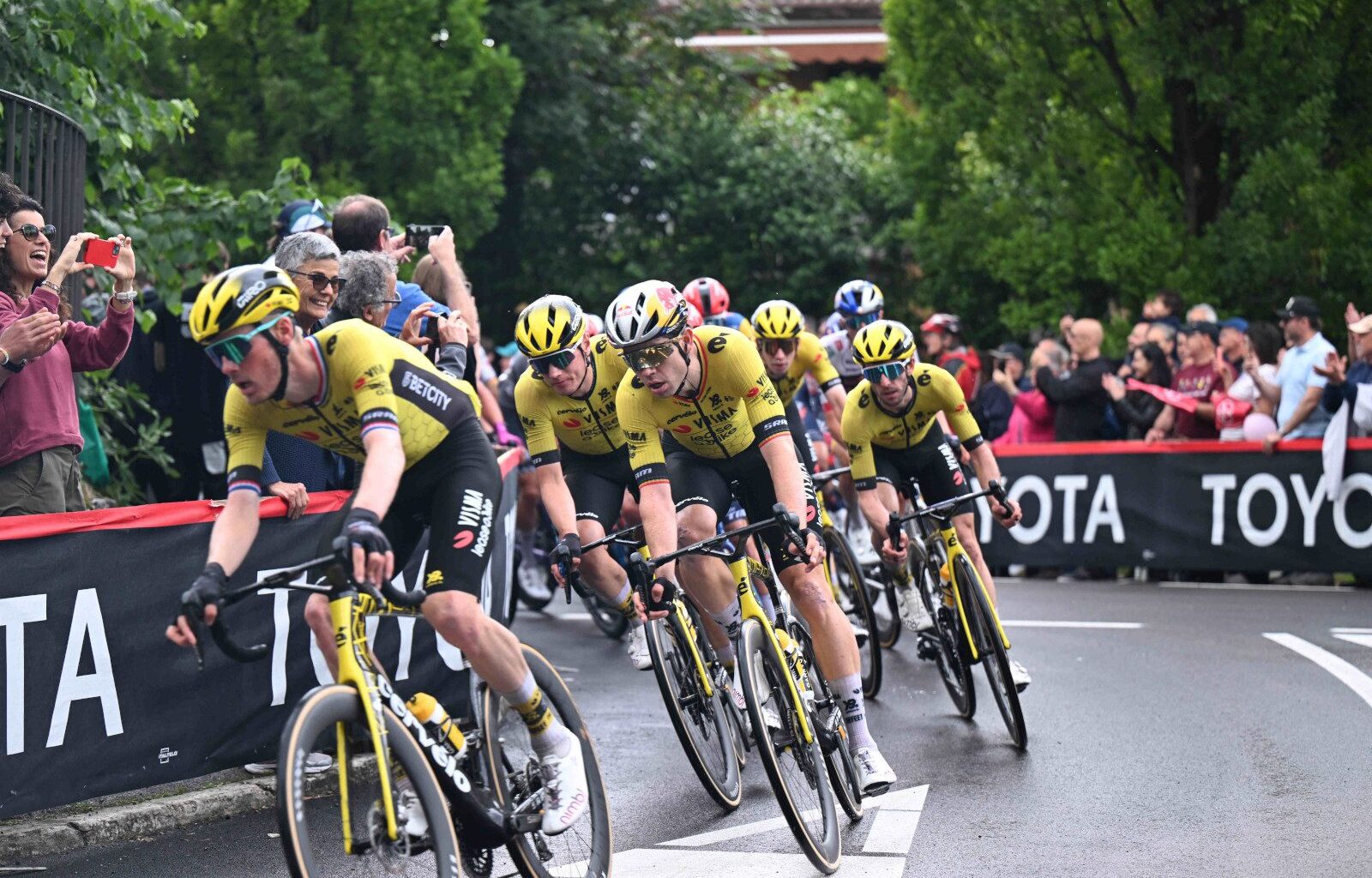Former Tour de France champion and long-time team owner Bjarne Riis says he sees signs that Visma – Lease a Bike may be struggling financially compared to the biggest outfits in the WorldTour.
Speaking with Feltet.dk, Riis said that while powerhouse teams such as UAE Team Emirates, Lidl–Trek, and Red Bull–Bora–Hansgrohe appear to have increased their budgets, Visma seems to be losing ground.
Top-heavy budgets in the WorldTour
“I don’t think Visma is anywhere near being the second or third richest team in the peloton anymore,” Riis told Feltet.dk. “They’re far behind the top three—UAE, Lidl–Trek, and Red Bull–Bora–Hansgrohe, in my view.”
Riis pointed to the number of key riders leaving the Dutch team as an indication of tightening finances.
“It’s not that they don’t want to keep them,” the said. “They’ve chosen to focus heavily on Wout van Aert and Jonas Vingegaard. But riders just below that level are moving on because the team can’t afford to keep them.”
High-profile departures this year include Tiesj Benoot, Olav Kooij, Dylan van Baarle, and Cian Uijtdebroeks, with fewer star signings coming in to replace them.
Visma’s business model is inferior to others
Riis, who managed his own WorldTour squad under sponsors like CSC and Saxo Bank before selling to Oleg Tinkoff in 2013, suggested that Visma’s sponsorship model also hints at limited outside backing.
“Many of the team’s sponsors are connected to the same ownership group,” he said. “Lease a Bike and Cervélo are both part of the Pon.Bike group. To me, that suggests they’re not as financially strong as they’d like to appear.”
‘He could double his salary if he moved’: Riis and Holm on Vingegaard’s Visma loyalty
Riis also addressed the growing financial divide in professional cycling, saying complaints about wealthy teams are misplaced.
“People say it’s unfair that UAE and others have huge budgets—but there’s no salary cap,” Riis said. “The rules are what they are. Instead of complaining, other teams just have to get better.”
He added that as the cost of competing at the top rises, more teams should consider merging—though pride often gets in the way.
“It takes more and more to be competitive,” Riis said. “Merging makes sense for many, but team owners rarely want to give up control. It’s often about pride more than business.”
The comments come a few days after Jerôme Pineau suggested a radical revenue sharing idea–ticketing spectators on Alpe D’Huez. He pitched the idea to former pro and current Groupama–FDJ team boss Marc Madiot.
Madiot spoke of similar challenges with smaller teams. He said French teams face heavier employment and tax obligations than some rivals.
“Apart from state sponsors (i.e., Team UAE Emirates, Bahrain), it’s difficult to exist in the peloton these days. Cycling used to be for workers and farmers; now it’s a sport for the rich.”

